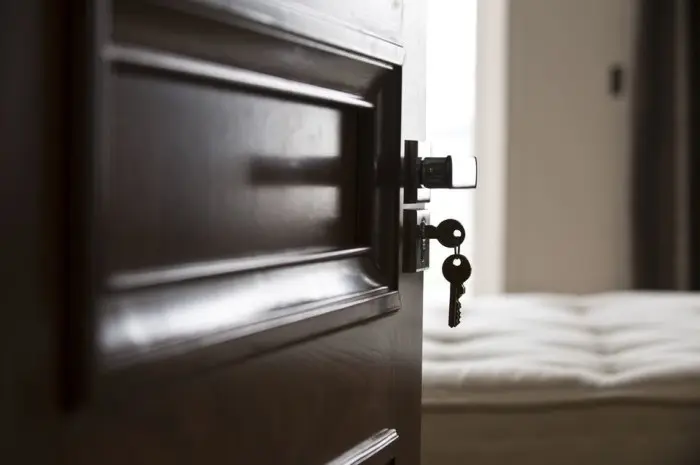Traveling can be an exciting adventure, but it’s crucial to stay vigilant about safety, especially when it comes to your accommodation. Hotels, though generally safe, can be vulnerable to security issues.
By taking proactive steps, you can ensure your safety and the security of your belongings. Here are essential hotel safety tips to keep in mind during your travels.
1. Research the Hotel and Its Location
Before booking, research the hotel and its surroundings. Check reviews for mentions of security concerns and choose hotels with good safety reputations. Consider the location’s safety, especially if you plan to explore on foot or use public transport.
Also Read
2. Securely Book Your Accommodation
When booking your hotel, use a secure method. Be cautious of unsolicited emails offering hotel deals and ensure you’re booking through a legitimate website or directly with the hotel. Phishing scams can lead to both financial loss and personal risk.
3. Check for Safety Features
Upon arrival, check for safety features such as fire escapes, working locks on doors and windows, and any provided safety deposit boxes. Familiarize yourself with the nearest fire exits and read the safety information provided in your room.
4. Be Discreet with Your Room Number
When checking in, ensure that the receptionist doesn’t announce your room number aloud. If they do, ask for a different room. You don’t want strangers knowing where you’re staying.
5. Inspect Your Room Upon Arrival
Upon entering your room, inspect it to ensure that everything is in order. Check that all windows and doors have functioning locks and there are no signs of tampering. If there’s a connecting door to another room, make sure it’s locked.
6. Use the ‘Do Not Disturb’ Sign and TV/Radio for Security
Even when you’re out, leave the ‘Do Not Disturb’ sign on your door and your TV or radio on. This gives the impression that the room is occupied, potentially deterring thieves.
7. Safeguard Your Room Key or Card
Treat your room key or card with care. Don’t leave it in public areas or in restaurants. If you lose your key or card, inform the hotel immediately so they can change your lock or deactivate the card.
8. Use Hotel Safes
Use the hotel safe for valuable items, travel documents, and extra cash. However, be aware that not all hotel safes are completely secure, so it’s advisable not to leave extremely valuable or irreplaceable items in them.
9. Be Cautious with Strangers
Be cautious when interacting with strangers, both inside and outside the hotel. Avoid sharing personal information or details of your travel plans with people you’ve just met.
10. Secure Your Wi-Fi Connection
Use secure internet connections when in your hotel. Avoid conducting sensitive activities like online banking over public Wi-Fi networks. Consider using a VPN (Virtual Private Network) for added security.
11. Ensure Door and Window Security
Always lock your hotel room door when inside, using all available locks. Check that sliding doors or windows are also secured, especially if you’re on the ground floor or have a balcony.
12. Trust Your Instincts
If something feels off, trust your instincts. Whether it’s an issue with your room, someone’s behavior, or the general environment, don’t hesitate to ask for a room change or bring your concerns to the hotel staff.
13. Keep Emergency Contacts Handy
Have a list of emergency contacts, including the local police, your country’s embassy (if traveling internationally), and emergency contacts back home. Also, know the hotel’s address and contact information.
14. Be Mindful of Fire Safety
Know the hotel’s fire safety protocol. Identify the nearest fire exits and have an evacuation plan. Avoid using elevators in case of a fire and know where the fire alarms are located.
15. Avoid First-Floor Rooms If Possible
Rooms on the ground floor are more accessible and can be more vulnerable to break-ins. If possible, request a room on a higher floor, but not too high that it’s inaccessible during emergencies.
Conclusion
Hotel safety is an often-overlooked aspect of travel planning but is essential for a worry-free trip. By being aware of your surroundings, taking advantage of security features, and practicing caution, you can protect yourself and your belongings.
Remember, the goal of these precautions is not to induce paranoia, but to empower you as a traveler. With these safety measures in place, you can relax and enjoy your hotel stay to the fullest.






















